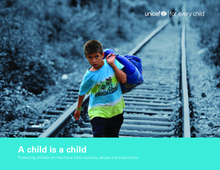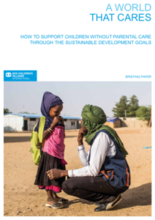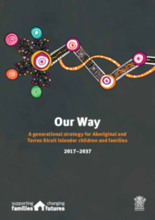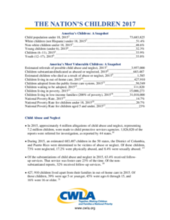Displaying 281 - 290 of 505
Among the millions of children on the move worldwide, many – including hundreds of thousands of unaccompanied children and adolescents – undertake dangerous journeys. This report shows how the lack of safe and legal pathways for refugee and migrant children feeds a booming market for human smuggling and puts them at risk of violence, abuse and exploitation. Building on recent UNICEF policy proposals, it sets out ways that governments can better protect these vulnerable children.
This Resolution Booklet includes the motions and resolution adopted by the European Youth Parliament at its 2017 meeting.
This paper reviews evidence and develops a framework to understand linkages between non-contributory social safety nets (SSNs) and the experience of childhood emotional, physical and sexual violence in low- and middle-income countries.
This report finds that there is a paucity of research on the role of caregiving in low- and middle-income countries, where the protective effects of high-quality care in buffering the child's developing stress regulation systems may be crucial. This paper reports findings from a longitudinal study (N = 232) conducted in an impoverished periurban settlement in Cape Town, South Africa.
The present study represents the first large-scale, prospective comparison to test whether aging out of foster care contributes to homelessness risk in emerging adulthood in the USA.
Bringing together cross-disciplinary expertise, this volume addresses a vast range of topics related to child abuse and neglect in Uganda.
This documentary tells the stories of four Aboriginal grandmothers in Australia whose grandchildren have been removed and placed in state care, and who are fighting to have their grandchildren placed in their care.
This briefing describes how the needs of children without parental care can be addressed through five of the SDGs: no poverty (1); quality education (4); decent work and economic growth (8); reduced inequalities (10); and peace, justice and strong institutions (16).
Our Way outlines a framework for transformational change that will occur over the next 20 years, representing a long-term commitment by government and the Aboriginal and Torres Strait Islander community to work together to improve the life outcomes of vulnerable Aboriginal and Torres Strait Islander children.
The Nation's Children 2017 provides the most up-to-date data on the status of children in the United States, with statistics on children in out-of-home care, child abuse and neglect, adoption, poverty and other risk factors, and more.





